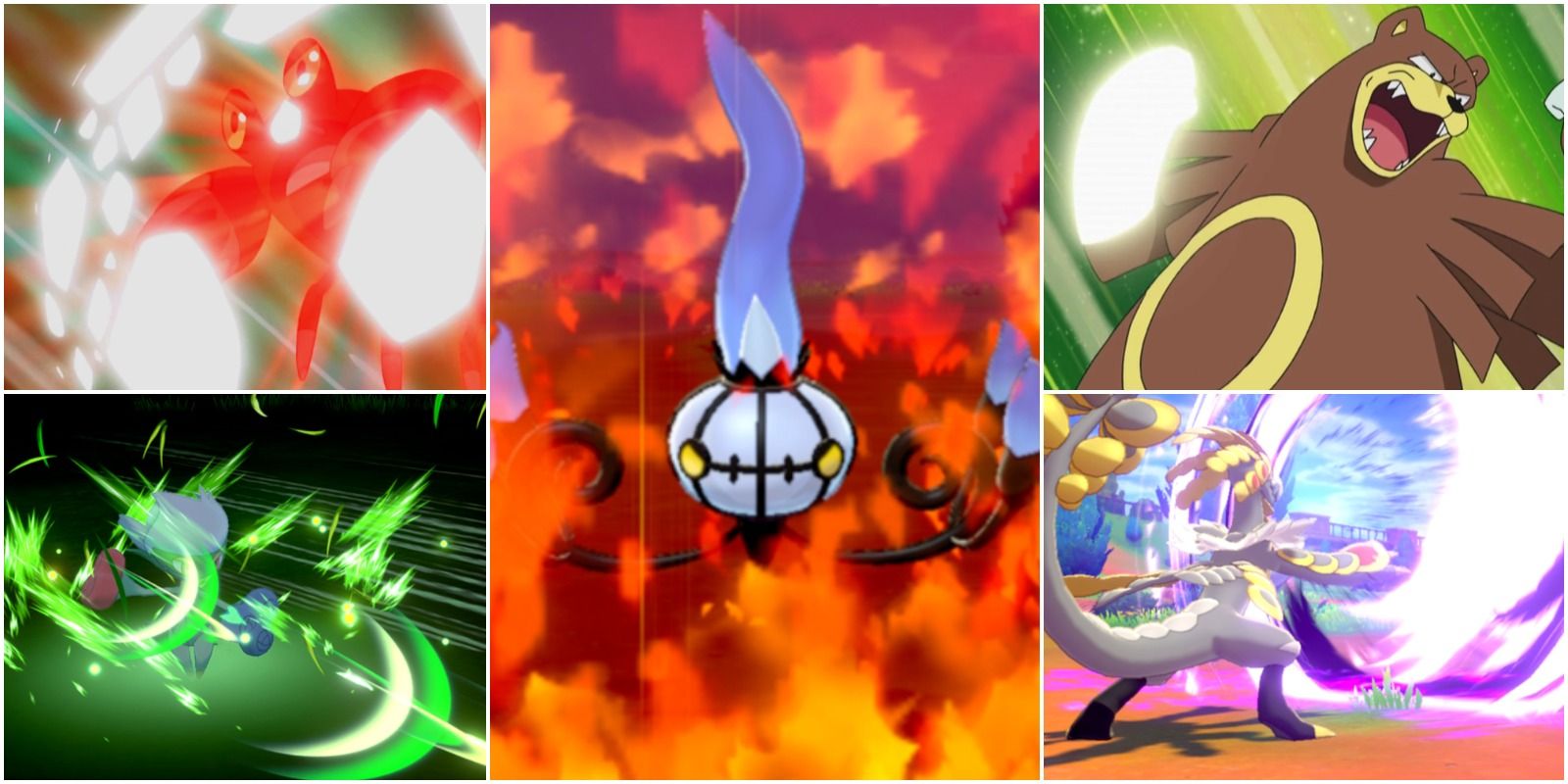
Battles in the Pokémon series may seem a little simplistic, but they’re very accessible and a whole lot of fun. At the same time, there’s a lot of depth to Pokémon battling that the casual observer may not know about.
There are a lot of unfortunate RNG-based things that can happen during combat, but there are also different strategies to employ. It’s certainly not as simple as firing off the strongest move you can muster at your opponent, because a lot of these come with a heavy price attached to their use. Here are some of the strongest attacks in the game, all of which impose stat penalties on the user.
Updated on January 6, 2021, by Reyadh Rahaman: There are quite a few variations of certain kinds of heavy-hitting attacks. In addition to making combat a bit more consistent, this allows a great variety of Pokémon to have access to these devastating moves and doesn't break one's immersion. Think of them as the same moves, but with different coats of elemental-type paint. Despite leaving one's Pokémon in a vulnerable state, these moves can be the killing strokes that end many battles in a trainer's favor.
15 Overheat
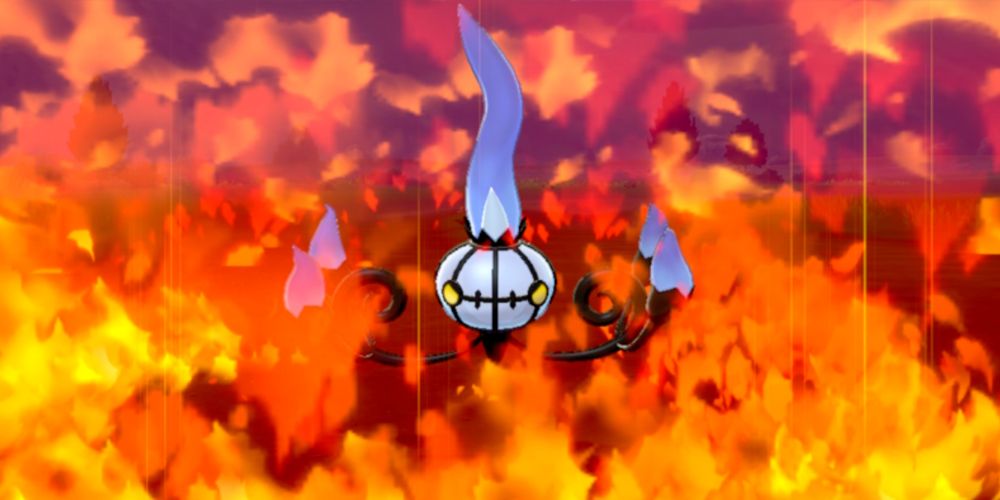
This pyromancer's fantasy is a move that first appeared in Generation III. It has a monstrous power of 130, making it one of the deadliest Fire-type attacks in the series. The downside is that it drops the user's Special Attack by two entire stages, making further special attacks much less effective.
Though, since this is meant more to be a final attack, the stat drops can be negligible if Overheat is timed properly. It is worth mentioning that this is one of two moves introduced in the third generation that would start a trend for some of the deadlier attacks in the franchise.
14 Psycho Boost

This is another move introduced in Generation III that helped start the deadly attack trend. Psycho Boost was identical to Overheat until Generation VI when Overheat and other variants of this move had their power dropped from 140 to 130 as a slight nerf.
This was likely done to change how easily the other moves could be learned due to their wide distribution among various egg groups and Pokémon species. As Psycho Boost can't be learned as easily, it evaded this nerf, which allows it to stand above the rest in terms of potential damage output.
13 Draco Meteor
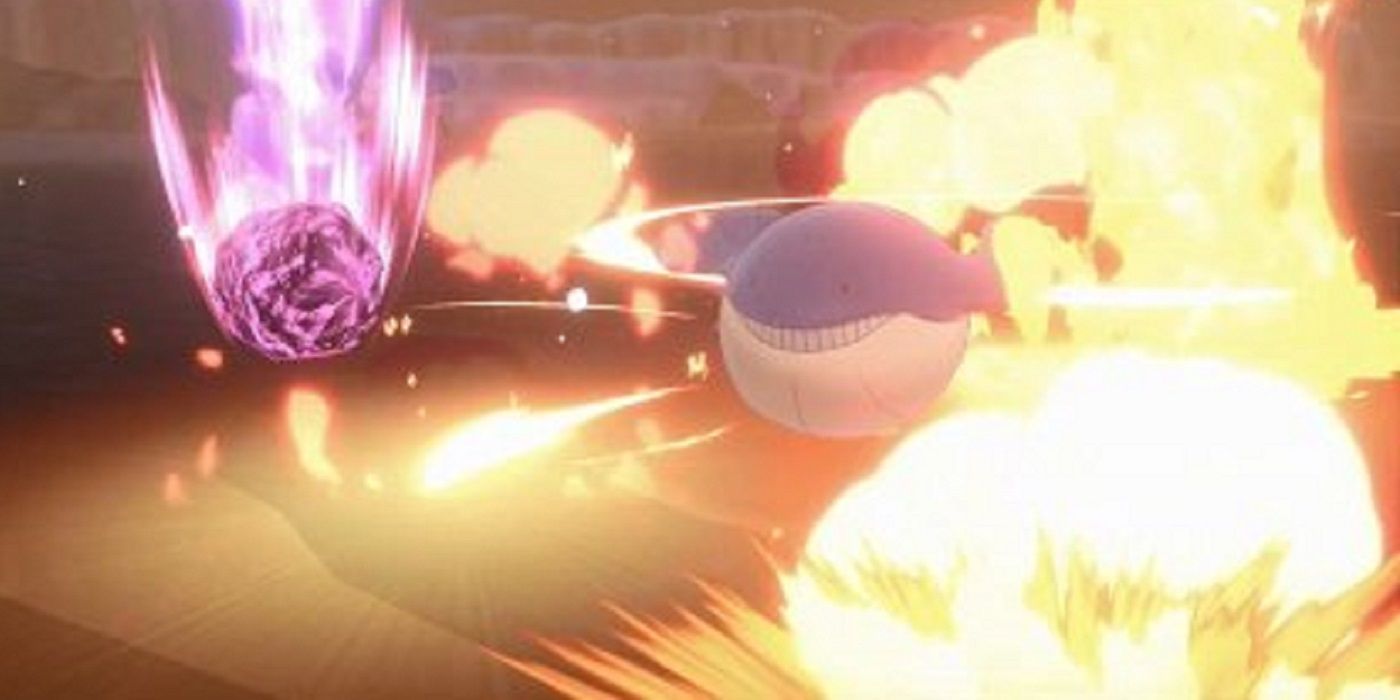
In Generation IV, a couple more variants of these Special Attack-dropping assaults were introduced. The flashier of the two, Draco Meteor, is a Dragon-type special move meant to call down utter annihilation onto the opponent.
Although not as powerful as Psycho Boost, this orbital strike has a base power of 130, which is more than enough to end many foes. Dragon-type attacks hit a great number of other types for neutral damage, which makes it pretty versatile against anything except Fairy-type Pokémon.
12 Leaf Storm
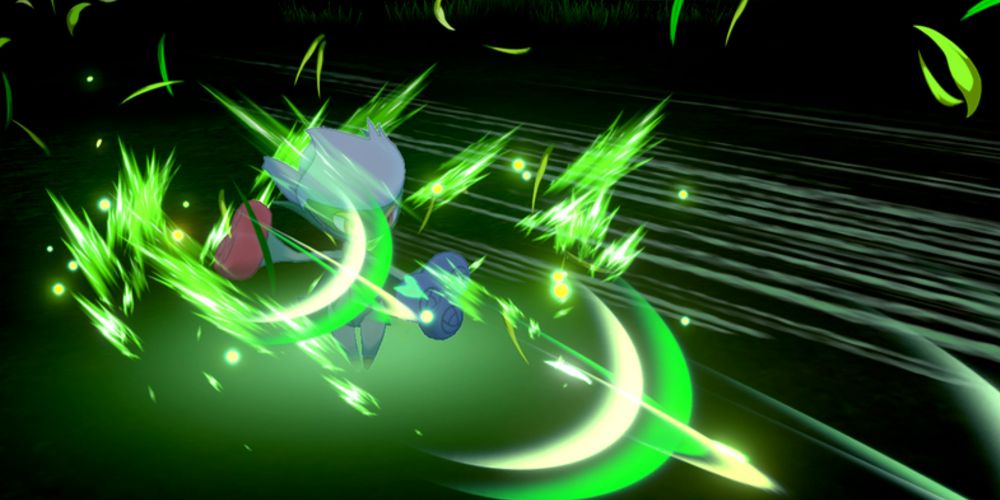
Alongside Draco Meteor, Leaf Storm entered the Pokémon world during Generation IV as a method for Grass-types to shred their adversaries to ribbons. Encompassing the same traits as its brethren, this attack stands out as it can be learned by more Pokémon species than any other variant of this move in the main series games.
Prior to this, the only Grass-type move that did even remotely similar damage was Solar Beam at 120 power. Though with a whole turn dedicated to an obvious build-up, it quickly became obsolete, making Leaf Storm the better choice for most trainers.
11 Fleur Cannon

This is the newest iteration of the Special Attack-decreasing powerhouse move. Joining the fray in Generation VII, it is the signature attack of the legendary Pokémon Magearna. It launches a cannonball of Fairy-type obliteration at any unlucky enough to be in its way.
Paired with Magearna's unique ability, Soul-Heart, it can be one of the most overpowered attacks in the game. Soul-Heart raises Magearna's Special Attack stat by one stage each time it knocks out an adversary, which can result in Fleur Cannon only dropping the Steel and Fairy-type Pokémon's stat by one stage as opposed to two. This can allow a trainer to spam Flear Cannon at foes for consecutive turns (upon a knockout) with only a slight decrease in power.
10 Close Combat
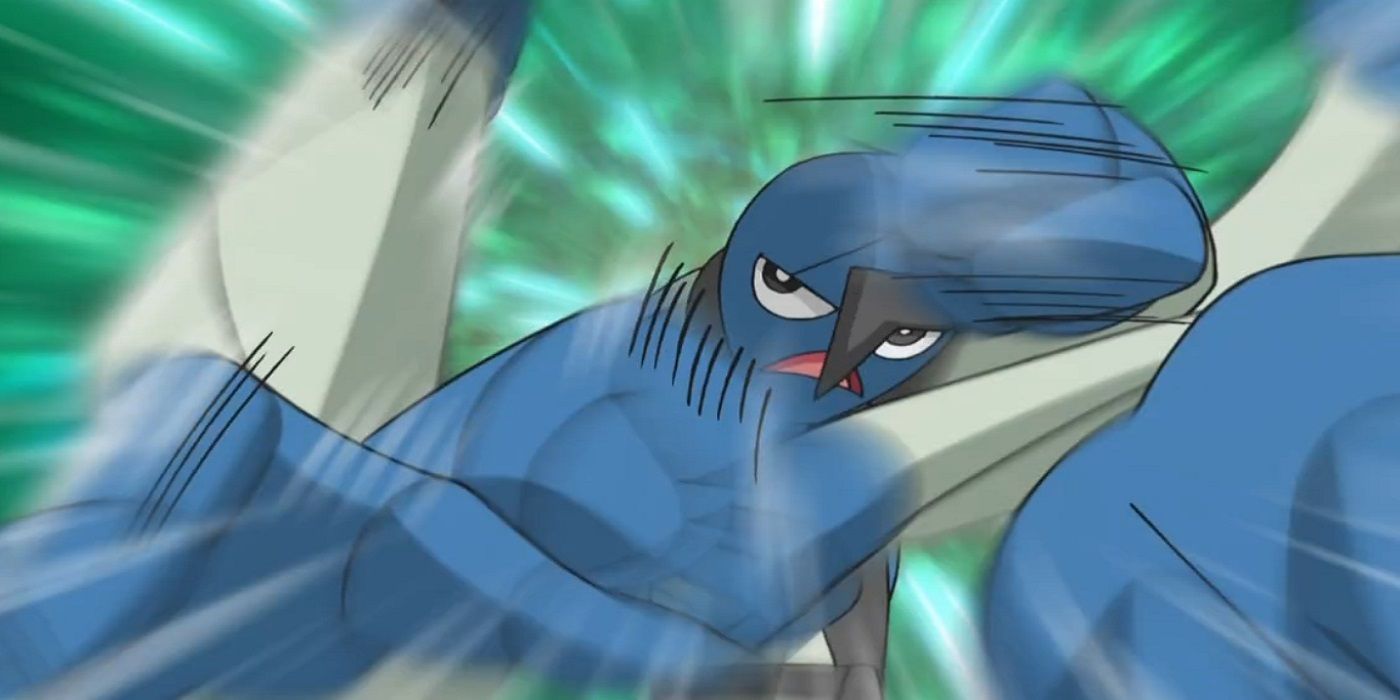
Needless to say, Fighting-type Pokémon tend to specialize in heavy physical attacks. Machamp has a darn six-pack on its back (though that may be partly due to its questionable 3D model), just to give you a benchmark for what you’re dealing with here.
As such, there are some very powerful Fighting-type STAB (Same Type Attack Bonus) moves to utilize that high Attack with. Close Combat is perhaps the most feared; a 120 base power move that sees the user leap into the fray and unleash close-range blows without guarding itself. This aggressive move comes with a cost, though: after attacking, the user’s Defense and Special Defense both fall by one stage.
9 Clanging Scales
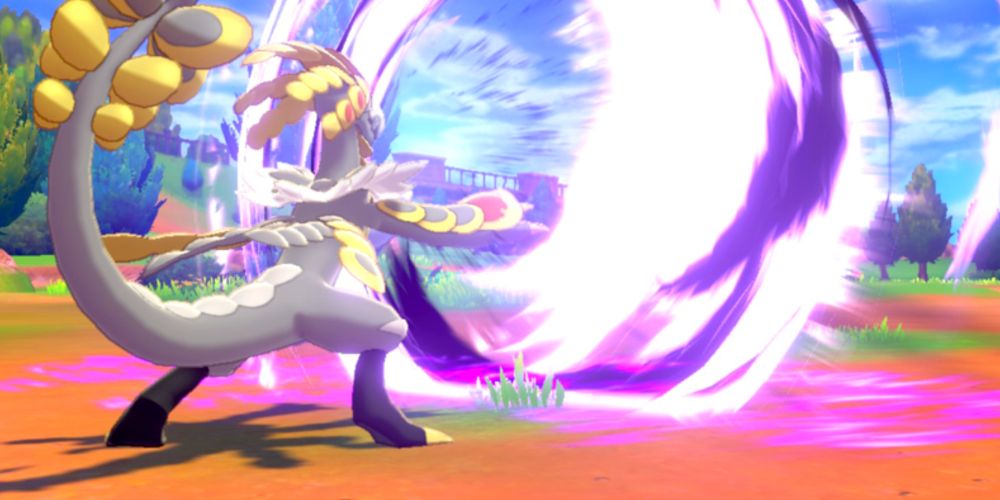
Like Deoxys’ Psycho Boost and Magearna’s Fleur Cannon, this next move is another special attack exclusive to just one Pokémon: Kommo-o. It’s a little weaker at base 110, but this Dragon-type move has perfect accuracy and its penalty for use isn’t (arguably) as heavy.
After rubbing its scales to produce a horrifying noise that strikes opposing Pokémon with soundwaves (yep, that’s what’s happening here), Kommo-o’s Defense is dropped by one stage. Because it… gave itself a nasty friction burn or something? Heck, let’s just roll with all this.
8 Superpower
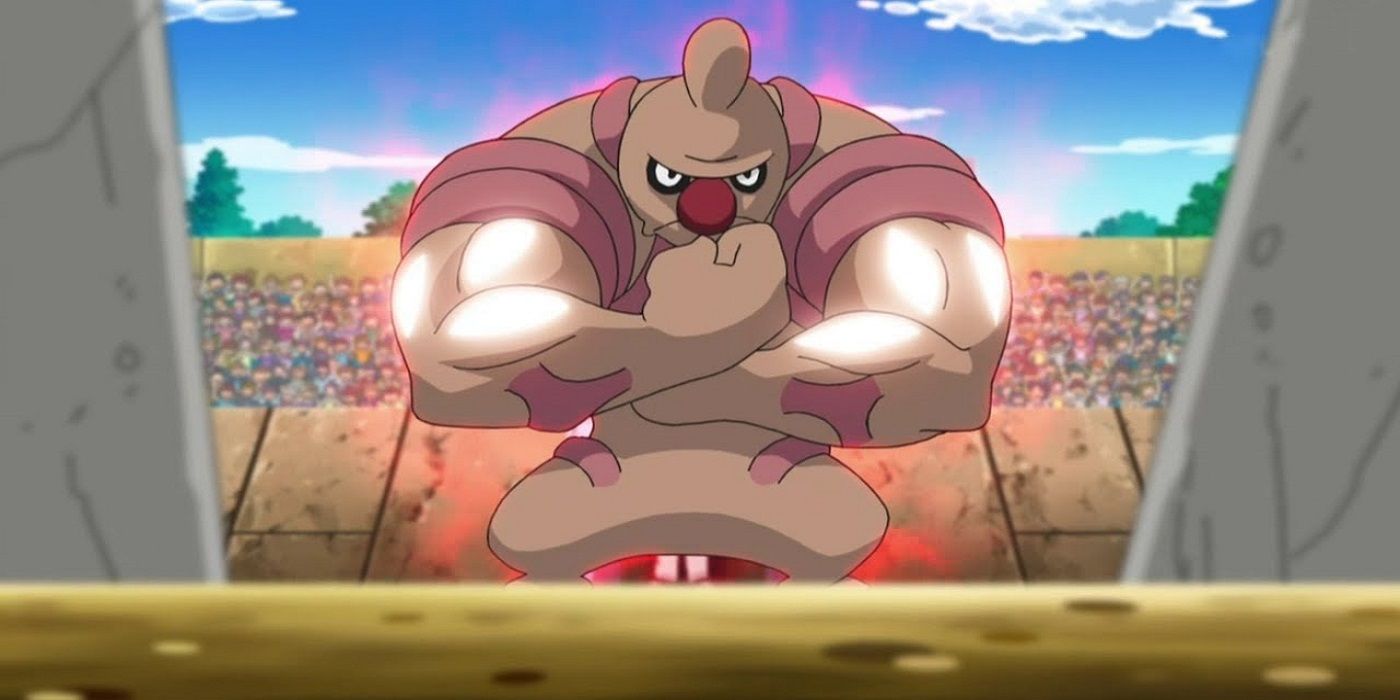
As we saw with Close Combat, if there’s one thing Fighting-types love, it’s barrelling into battle at full speed and trying to deal as much damage as possible with no regard to their own safety or the consequences. They’re the Arnold-Schwarzenegger-in-every-Arnold-Schwarzenegger-movie-ever of the Pokémon world, and you’ve got to respect that.
This physical move is just as powerful, accurate, and PP-limited as Close Combat, but it comes with a different drawback. While it also drops two stats by one stage each on use, this time it’s Attack and Defense that’s lost. Depending on the situation, this can be better or worse than Close Combat’s drawback.
7 Hammer Arm
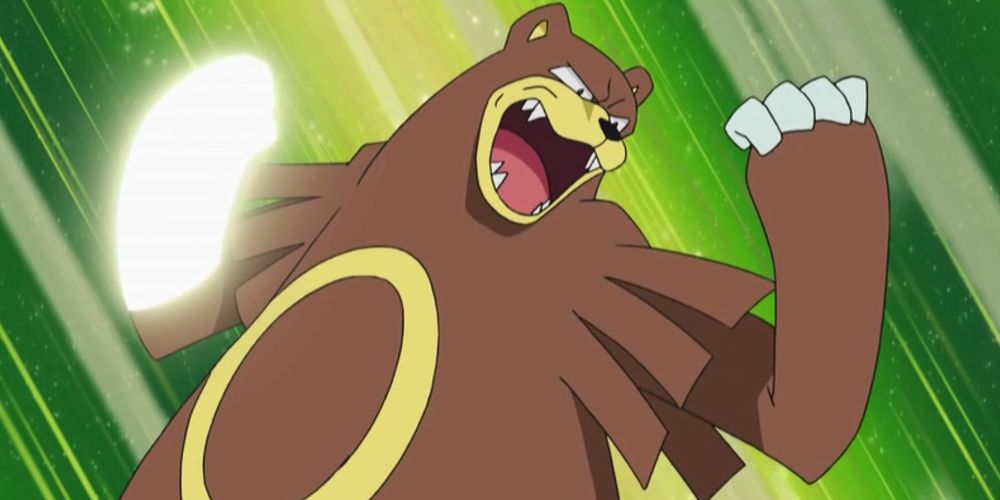
Unleashed in Generation IV to the delight of Attack-oriented pokemon, Hammer Arm can smash foes into submission better than most other Fighting-type attacks with a staggering 100 base power. The downside is that it drops the user's speed by one full stage.
However, if one places this attack into one of the four move slots of a Pokémon who does not care about moving first, it results in an attack with no real downside. There are actually other attacks that increase in damage when their user's speed drops, like Gyro Ball, which can make Hammer Arm not only a great finishing move but one that can be utilized in more complex strategies.
6 Ice Hammer

Ice Hammer is an obscure move. One many fans may never have seen in action or even heard of before, in fact. It’s only learned (naturally) by Generation VII’s Crabominable (the evolution of Crabrawler).
It has the same base power as Hammer Arm (though it’s Ice-type instead of Fighting) and also suffers from the same drawback: it causes the attacker’s Speed to fall. This isn’t necessarily a bad thing, though, as this oversized furry crustacean isn’t exactly outspeeding anything in the first place. It can even be useful in a Trick Room capacity.
5 Shell Smash
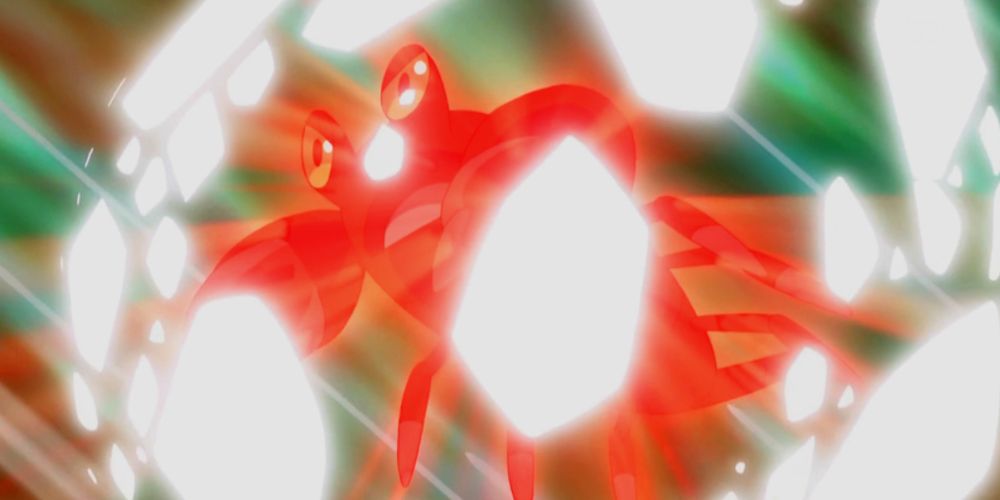
There’s an important caveat here: Shell Smash is a Normal-type status move, not a direct attack itself. We’re going to go ahead and include it here anyway, though, because it certainly raising the Pokémon’s attacking potential.
All competitive players have felt the raw, seething power of a Shell Smash-boosted sweep at one point or another. Infamous as one of the best-boosting moves ever, Shell Smash gives the user a +2 in Attack, Special Attack, and Speed, making it a super versatile and very, very scary move. The cost for doing so is that, like Close Combat, it drops the Pokémon’s Defense and Special Defense. Still, this isn’t too much of an issue, and it’s easily circumvented by using a White Herb item.
4 V-Create

Now we’re really talking. In terms of pure base power alone, V-Create is among the strongest moves in Pokémon history. This event-exclusive attack is usually available only to Victini and Rayquaza, boasting an absurd 180 base power. For reference, Self-Destruct has only 20 more base power and the user instantly faints on using it (though Explosion has 250).
In Victini’s hands, STAB makes this physical Fire-type attack 270 power. Give the happy little critter a Choice Band, and it can tear through the toughest Poké-hides like a hot knife through butter and claims souls, hopes, and dreams left and right. That’s why they call it the Victory Pokémon: because it can absolutely ruin its foes with V-Create if given half a chance. On the flip side, though, it’s not a move that can be easily spammed: it drops the user’s defenses and Speed by one stage.
3 Dragon Ascent
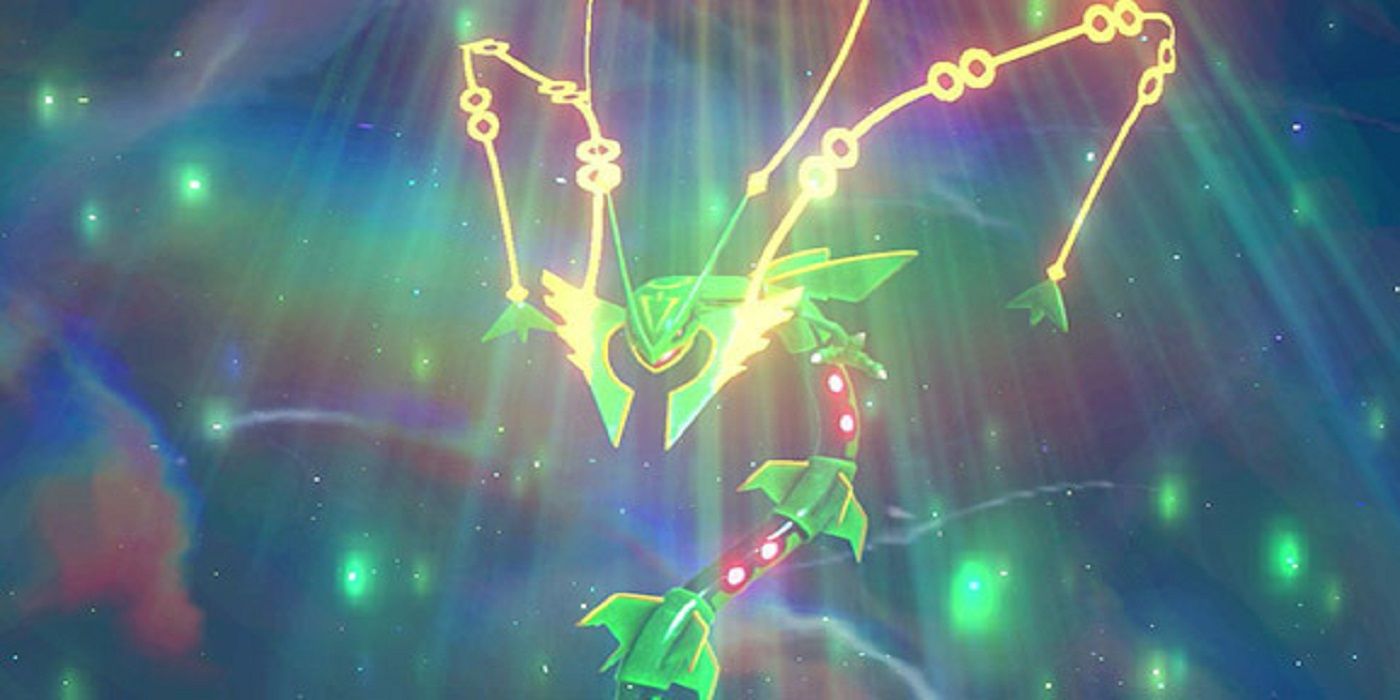
Speaking of Rayquaza, somebody at Game Freak seemed to think that this almighty serpentine powerhouse needed a Mega Evolution. The likes of poor little Luvdisk had been crying out for the same treatment, but nope: Rayquaza’s getting even angrier, spikier, and toothier. Heck, while they were at it, they made it so that Rayquaza didn’t even need a Mega Stone to Mega Evolve, allowing it to actually hold a boosting item!
The only requirement for Rayquaza to transform was to have the move Dragon Ascent. This fearsome attack is the Flying-type Close Combat, available only to Rayquaza, reducing its stats in the same way (Defense and Special Defense drops) on use.
2 Mind Blown
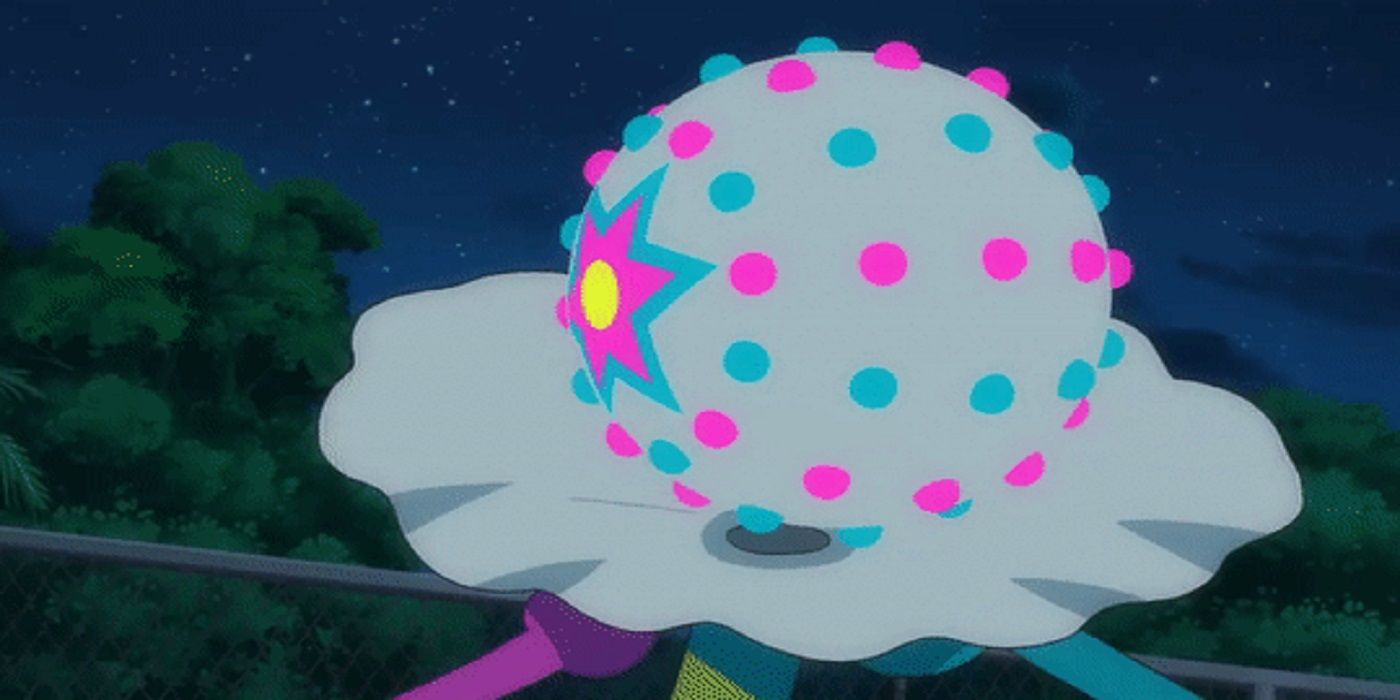
Another very obscure move, Mind Blown is available only to the Ultra Beast Blacephalon. This bizarre beast was already terrifying, in a most-hideous-clown-since-Pennywise sort of way, but once you get into its power, you really get to appreciate what a monster this thing could be.
With 107 base Speed and a mightly 151 base Special Attack, this Fire and Ghost-type Pokémon is a force to be reckoned with. Mind Blown is its strongest attack, with 150 base power and perfect accuracy, but a lot of players just daren’t run it because the penalty is so severe: Blacephalon loses half of its maximum HP (not current HP) after using the move, making it super impractical. A Pokémon that’s reduced its other stats by using the rest of these moves can simply switch out afterward, but HP (which is still a stat, technically speaking) can’t be recovered so easily.
1 Curse
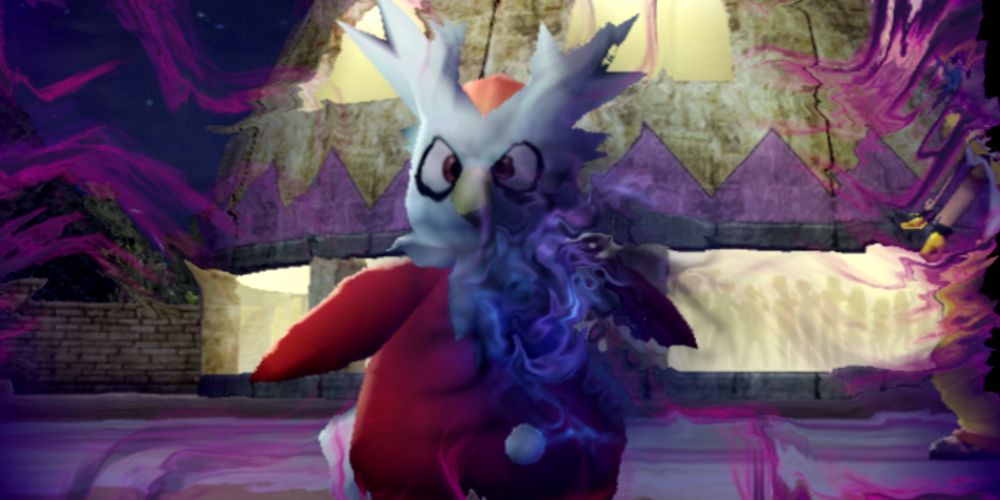
Finally, we have another status move that reduces stats to boost others. Generally speaking, it doesn’t have as dramatic an effect as Shell Smash does; simply boosting the user’s Attack and Defense while reducing their Speed, all by one stage.
Interestingly, as fans will know, Curse has a different effect if used by a Ghost-type. In this case, it will reduce the user’s HP by half and then lay a curse on the opponent, which saps a quarter of their HP (original HP, in the case of a Dynamaxed or Gigantamaxed target) at the end of each turn. This variant of Curse is quite impractical, as the target is going to just switch right the heck out of that nonsense unless trapped. Physical tanks really appreciate the former Curse, though.
from Game Rant - Feed https://ift.tt/2LpGA5T
Comments
Post a Comment